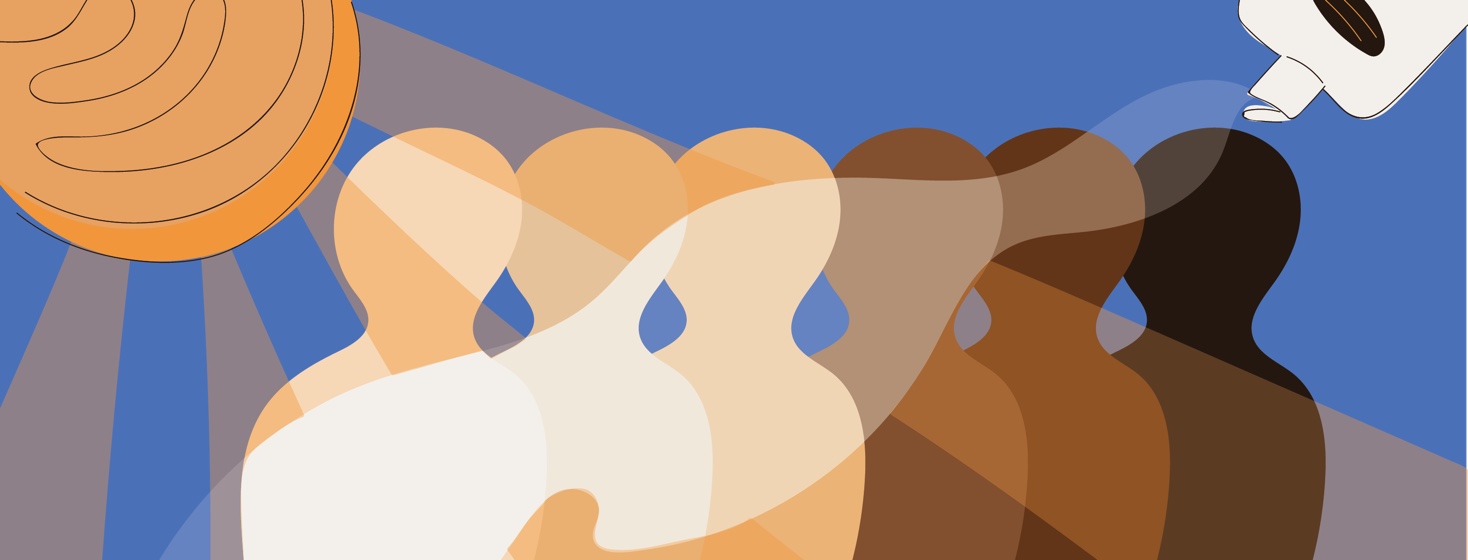Sunscreen for Everyone
I grew up in Southern California and attended an integrated high school in Los Angeles. Every day, thirteen buses filled with children from all over the city would join us in the San Fernando Valley and we did life together. Classes, football games, plays, orchestra: we may have been from all parts of LA, but we were all Grover Cleveland High School Cavaliers. I grew up with a sensitivity to issues of race and ethnicity. I appreciated different cultures, various types of music and food. It was a great experience.
Sun damage is color blind
When it comes to skincare, sun protection and melanoma, I have always wondered about people of color. I have thought about whether people with darker skin should be concerned. Is this just an issue for fairer-skinned folks or is it a community-wide issue? Well, as it turns out, protecting our skin is something we all should consider. "Anyone can get skin cancer," says Lisa Chipps, MD, director of dermatologic surgery at Harbor-UCLA Medical Center. It is less common in people of color, but it’s often more serious. That's because it's usually found later, when it's harder to treat.1 So, skin cancer does not discriminate. It is a community issue that requires a community to solve.
One woman’s sun issues
But, what has been done in the dermatologic industry to serve the entire community? It turns out that this is a work in progress. Back in 2013, Katonya Breaux had the same thoughts and concerns when she tweeted, "Can someone make brown sunscreen? Please! Must I look like a clown to protect my skin? #blackfolkburntoo." She had visited a dermatologist after noticing that black moles had “popped up” on her face over the years. She soon discovered that it was actually sun damage. Ms. Breaux commented that as a native Los Angeleno, she never wore sunscreen outdoors. Her family and community members never did as well.
Skincare products for people of color
She went to a local pharmacy and purchased sunscreen, but found that it left her dark skin “white-tinged.” Ms. Breaux is actually the mother of famous musician Frank Ocean and has used her platform to bring awareness to these issues. She noticed that women of color had been excluded in certain ways from parts of the beauty industry. Often times products for darker-skinned and/or curly-haired people were developed much later.2
An entrepreneur in action
Breaux went into action and developed her own tinted mineral sunscreen and Ocean has become an evangelist for sun protection among the African-American community. (Think about significance and irony that a person named Ocean would become a sunscreen advocate.) The market has opened up. More recently, other brands of sunscreen designed to be clear and to avoid a white cast on darker skin found their way to drugstore shelves and supermarket end racks.
Community advocacy for all shades of folks
My purpose here is not to recommend a certain brand or company, but to bring awareness to community-wide skin cancer issues and trends. I am encouraged that culturally-sensitive skin protection products are being developed and my hope is that lives will be saved in the process. Certainly, there is much more left to be done. The sun shines on all of us and the more we can come together, the better we all will be.

Join the conversation